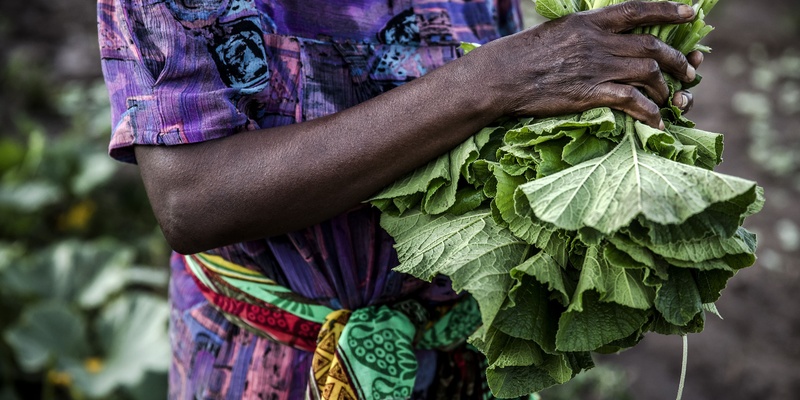There is no food security without plant health
Posted on Fri, 16 Oct 2020, 11:39

©FAO Luis Tato FAO
World Food Day 2020 calls for global solidarity with the most vulnerable, marking a steppingstone in the path to promote plant health and eradicate hunger.
Rome, 16 October 2020. Never before has the importance of ensuring the right to adequate food been so clearly reflected as today. This year’s World Food Day comes as the world continues to fight COVID-19 and millions of people may slide into extreme poverty.
The current pandemic has confirmed that access to sufficient, affordable, safe and nutritious food is key to live active and healthy lives. Plants can strongly contribute to turn food security into a reality for everyone. They produce almost all of the oxygen we breathe and make up 80 percent of the food we eat. Even the meat, fish or dairy products we eat come from animals that depend on plants to grow.
The pandemic has shown the fragility of agri-food systems. Climate change threatens to reduce not only the quantity of crops, lowering yields, but also their nutritious value. Rising temperatures also mean that more plant pests are appearing earlier and in places where they were never seen before. This poses a high risk, as plant pests are yet responsible for losses of up to 40% percent of food crops globally.
At the same time, international travel and trade, which have tripled in volume in the last decade, can quickly increase the magnitude of spread of plant pests and diseases around the world, causing great damage to native plants and the environment. For instance, the introduction and spread of fall armyworm across Africa, Asia and the Middle East could result in adverse impacts on the seasonal yield and local economics, affecting seriously food security and livelihoods of the populations in the countries.
As with human health, protecting plants from the spread of pests and diseases is far more cost-effective than dealing with full-blown emergencies.
“We need to step up efforts and to strengthen collective action to switch to more sustainable and resilient food systems, to preserve biodiversity and to advance the right to adequate food for present and future generation”, explained Juan Carlos García y Cebolla, Right to Food Team Leader of the Food and Agriculture Organization of the United Nations (FAO).
In the words of Avetik Nersisyan, IPPC Officer in Charge: “Countries have put in place different instruments that have provided valuable responses, such as the International Standards for Phytosanitary Measures and the Right to Food Guidelines. However, considering the dimension of the challenges, the world needs to increase innovation in governance, as well as in capacity to implement those policy tools.”
The right to adequate food can contribute to transform food systems by enhancing synergies across sectors. As a fundamental human right, the right to adequate food cannot be realized, unless other human rights are also fully enjoyed. Policies and actions to promote plant health in this context are fundamental in achieving the 2030 Agenda.
International Year of Plant Health: a once in a lifetime opportunity
World Food Day 2020 is celebrated within the International Year of Plant Health (IYPH), which aims to raise global awareness on how protecting plant health can help end hunger, reduce poverty, protect the environment and boost economic development.
Keeping the world’s plant resources is a shared responsibility of everyone. There are many ways in which the international community governments, academia, private sector and civil society organizations can contribute to this goal.
FAO and its International Plant Protection Convention (IPPC) are leading activities to make the Year a success as well as promote plant health beyond 2020. In view of supporting this initiative, the FAO Right to Food Team and the IPPC Secretariat have embarked on collaboration.
The IPPC is an international treaty established in 1952 whose Secretariat is hosted by FAO. Its mission is to protect the world’s plant resources by preventing the introduction and spread of harmful pests. Its governing body is the Commission on Phytosanitary Measures (CPM).
Related links
International Plant Protection Convention (IPPC)
The IPPC Secretariat and the FAO Right to Food Team join forces to fight against hunger
Plant health and food security
International Year of Plant Health
Media enquiries may be sent to [email protected].

